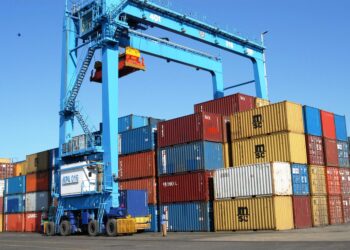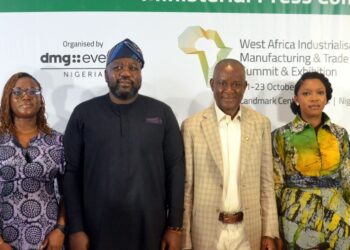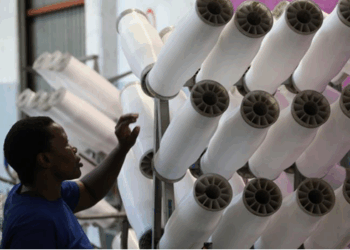The use of cash and cheques as payment instruments for transaction settlements is becoming a thing of the past in Nigeria, thanks to the emergence and the presence of digital payment instruments and systems. Analysis of data from the National Bureau of Statistics indicates that Nigerians transacted much more of their businesses with ATMs than with any other mode of payment in the third quarter of 2018.
In the said quarter, 220.27 million transactions, summing up to N1.15 trillion was conducted with the use of Automatic Teller Machines (ATM). Although that is not the highest transaction volume ever recorded by ATM as a means of payment since the introduction of the cashless payment system in Nigeria, the data underscores the fact that more and more Nigerians are conducting their business with ATMs these days.
The data also show that many Nigerians are getting used to electronic fund transfers as a means of conducting business. One type of Electronic fund transfer that was used a lot by Nigerians in Q3 2018 is the Instant Payment (NIP) system which recorded 126.6 million transactions worth N19.9 trillion, way more than the amount recorded with the use of ATMs. Though transaction volume of businesses conducted with Instant Payment (NIP) was less than those conducted using ATM, the amount involved in the Instant Payment transactions far outstripped that of ATM. It does, therefore, appears that the retail businesses used ATM more while bigger companies used NIP.
On the other hand, Nigerians conducted 86.038 million transactions via the point of sale (POS) payment system. 13.96 million transactions worth N69.07 billion was conducted via the internet compared to 2.066 million transactions, totalling N1.18 billion that was conducted with cheques. The Q3 2018 number is the highest transaction volume conducted through the internet since 2016 and it represented an increase of 42% over the Internet-based transaction volume in Q2 2018.
Compared to 2016, transactions conducted via the internet in Nigeria increased by 289% in Q3 2018 over the Q1 2016 numbers. The data show that the use of cheques for transaction settlements in Nigeria is falling at a steady rate as the Q3 2018 volume was less than the Q2 2018 volume which was less than the Q1 2018 volume. There has been a decreasing trend in the use of cheques to settle transactions since Q3 2017. In all, the total number of transactions conducted via e-payment systems in Nigeria during Q3 2018 stood at 5.29 billion, all of which total to a whopping N340 trillion.
Universal Trend
The revelations contained in the said report are not surprising as people in Nigeria are beginning to take advantage of the ease and convenience of digital payment systems. This trend is a fulfilment of prophesy by the United Nations body on international trade and development which had predicted in 2017 that “Online, mobile and digital currency payment systems are set to overtake credit and debit cards as the most popular ways to pay in e-commerce, worldwide by 2019” In its “Information Economy Report 2017: Digitalisation, Trade and Development”, the United Nations Conference on Trade and Development (UNCTAD) said that the share of credit and debit cards in global payments is expected to drop by 46% by 2019.
Although the size of the mobile payment market in Nigeria is still small when compared with other economies, the fact that it is growing is something to smile about. In China for example, the size of the mobile payment market reached 23 trillion yuan or US$3.5 trillion by the end of the second quarter, up 22.5% from the previous quarter, according to China’s internet research firm, Analysys International.
The trend set to increase with AfCFTA
There is no doubt that the trend will increase especially with the signing and adoption of the African Continental Free Trade Area (AfCFTA). According to a recent CNN report, “The AfCFTA has the potential to bring over 1.2 billion people together into the same market” and this has very salutary and positive effect for digital and mobile payment systems in Africa.
Unfortunately, Nigeria has not yet signed or joined the bandwagon of AfCFTA, but it is hoped that when Nigeria does join, the use of digital payment systems will “implode”.
Bye Bye Cash
It does look like the era when bank customers come to or leave the banks with “Ghana must go” bags of cash is gone forever. Cashless transactions will go a long way to save the government a huge sum as less money would need to be printed and the incidence of robberies involving cash will be on the decrease.
There will be less need for bullion vans and their sirens on the roads and the CBN will be less concerned about how to clean dirty Naira notes, which often times causes Catarrh and sneezing for bank tellers and cashiers.
Unfortunately, though, digital payment systems come with their own problems, like identity theft, hacking and other computer-related fraud. Be that as it may, the world is embracing digital payment systems and Nigeria and Nigerians should not be left behind as the advantages far outweigh the disadvantages, especially with a good dose of care and internet/system security.





















